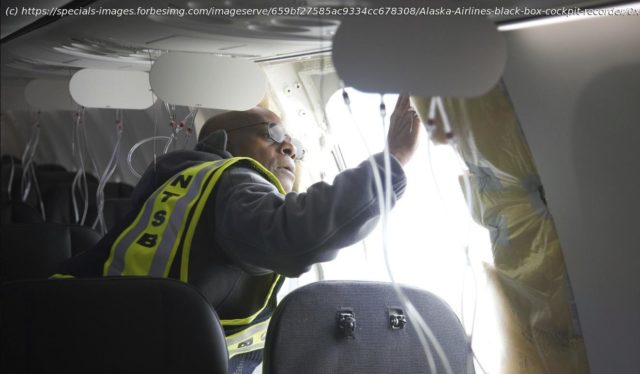For six years, NTSB investigators have pushed for a rule requiring planes to retain cockpit audio recordings for 25 hours. But the FAA has been slow to react.
The cockpit voice recorder for Alaska Airlines Flight 1282 was overwritten, hampering investigators aiming to determine why a door plug for an exit door on the Boeing 737 Max 9 jetliner blew out shortly after the flight took off from Portland on Friday night.
“There is nothing on the cockpit voice recorder,” Jennifer Homendy, chair of the National Transportation Safety Board (NTSB), told reporters at a Sunday news conference following the first full day of investigation, adding that “since 2018, we’ve had we’ve done 10 investigations where the CVR was overwritten.”
When investigating any incident, the NTSB wants to listen to the audio from the cockpit to try to glean clues from verbal communication or sounds, such as mechanical noises or alarms that might be overheard. But too often that audio is not preserved for investigators, making it much harder to get to the bottom of what happened.
Homendy described the overwritten recording on Alaska Airlines flight 1282 as “a loss for FAA and a loss for safety, because that information is key, not just for our investigation, but for improving aviation safety.






